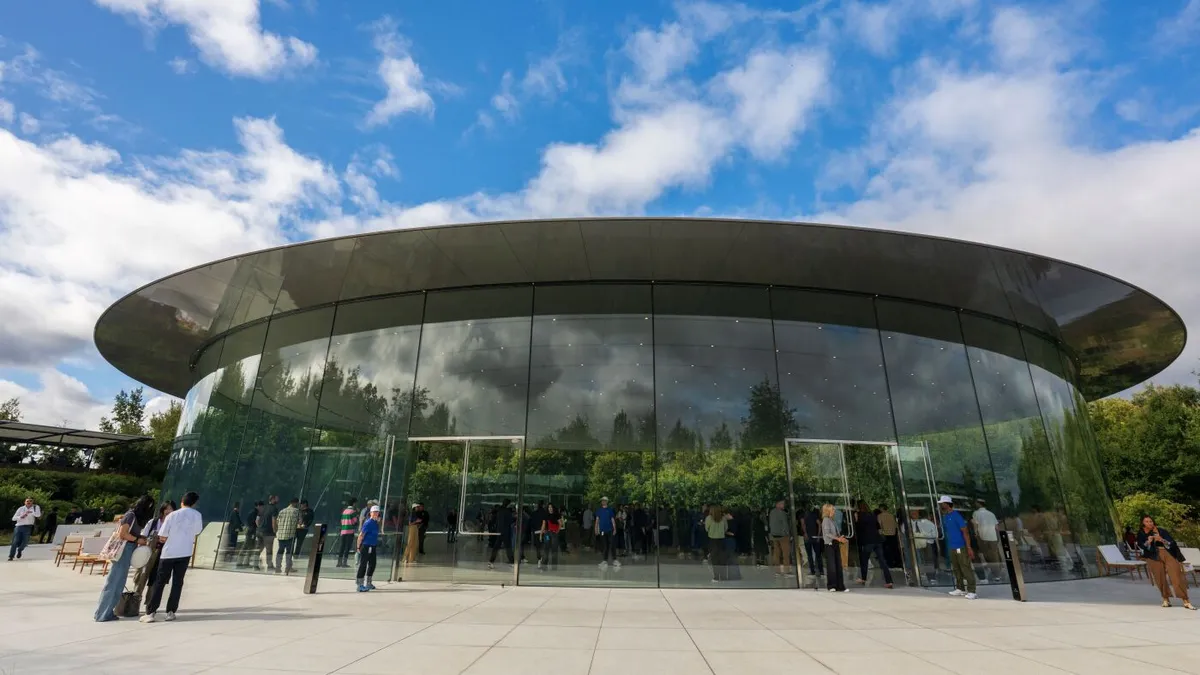
On Thursday, tech giants Apple and Google took significant steps by removing applications designed to alert users about the presence of Immigration and Customs Enforcement (ICE) agents. This decision followed intense pressure from Florida Attorney General Pam Bondi, raising concerns about the influence of the Trump administration over major tech companies during his second term in office. Critics argue that this move underscores the growing sway that the administration has over Silicon Valley.
Apple announced the removal of an app called ICEBlock from its App Store after being informed of safety risks associated with the application. ICEBlock, which was launched in April, operated as a crowd-sourced alert system similar to Waze, allowing users to report ICE sightings and warn one another when agents were nearby. Despite quickly amassing hundreds of thousands of downloads, the app was taken down only after Attorney General Bondi demanded its removal, stating, "We reached out to Apple today demanding they remove the ICEBlock app from their App Store — and Apple did so," in a statement to Fox News.
Interestingly, since ICEBlock was never available on the Android platform, it was not listed on Google’s Play Store. However, a spokesperson from Google confirmed that the company also removed similar applications for violating their policies, aligning their actions with those of Apple.
The developer of ICEBlock, Joshua Aaron, expressed discontent over the app's removal, attributing it to political pressure. He emphasized the app's purpose as a form of protected speech, drawing parallels to Apple's mapping service that enables users to report accidents, hazards, and police speed traps. "Capitulating to an authoritarian regime is never the right move," Aaron stated, highlighting the broader implications of censorship.
The removal of ICEBlock has reignited discussions surrounding the concept of jawboning, a term used to describe when government officials exert pressure on companies to censor speech. Critics argue that this practice undermines free expression and sets a troubling precedent. Kate Ruane, Director of the Center for Democracy and Technology's Free Expression Project, pointed out that when companies comply with government demands to achieve other objectives—such as avoiding tariffs or securing merger approvals—they send a message that such compromises are acceptable. This, she asserts, erodes the promise of the First Amendment for everyone.
Apple's CEO, Tim Cook, has sought to maintain a favorable relationship with the Trump administration, particularly amidst aggressive tariff policies that could negatively impact the company's financial performance. Much of Apple's production occurs overseas, in countries like China and India. In August, Cook presented Trump with a 24-karat gold plaque during a visit to the White House, a gesture that symbolizes Silicon Valley's deference to the president. Notably, Trump has also exempted smartphones—including Apple’s iPhones—from tariffs, further complicating the dynamics between the tech giant and the administration.
Legal experts, such as Gautam Hans, a law professor at Cornell University, suggest that many large organizations are opting to remain cautious in their dealings with the government, even when faced with improper or unconstitutional actions. Hans believes that while Apple could potentially challenge these pressures legally, it is unlikely to pursue such a case. "Compliance will only incentivize further government demands," he warns, shedding light on the ongoing struggle for free speech in the tech industry.